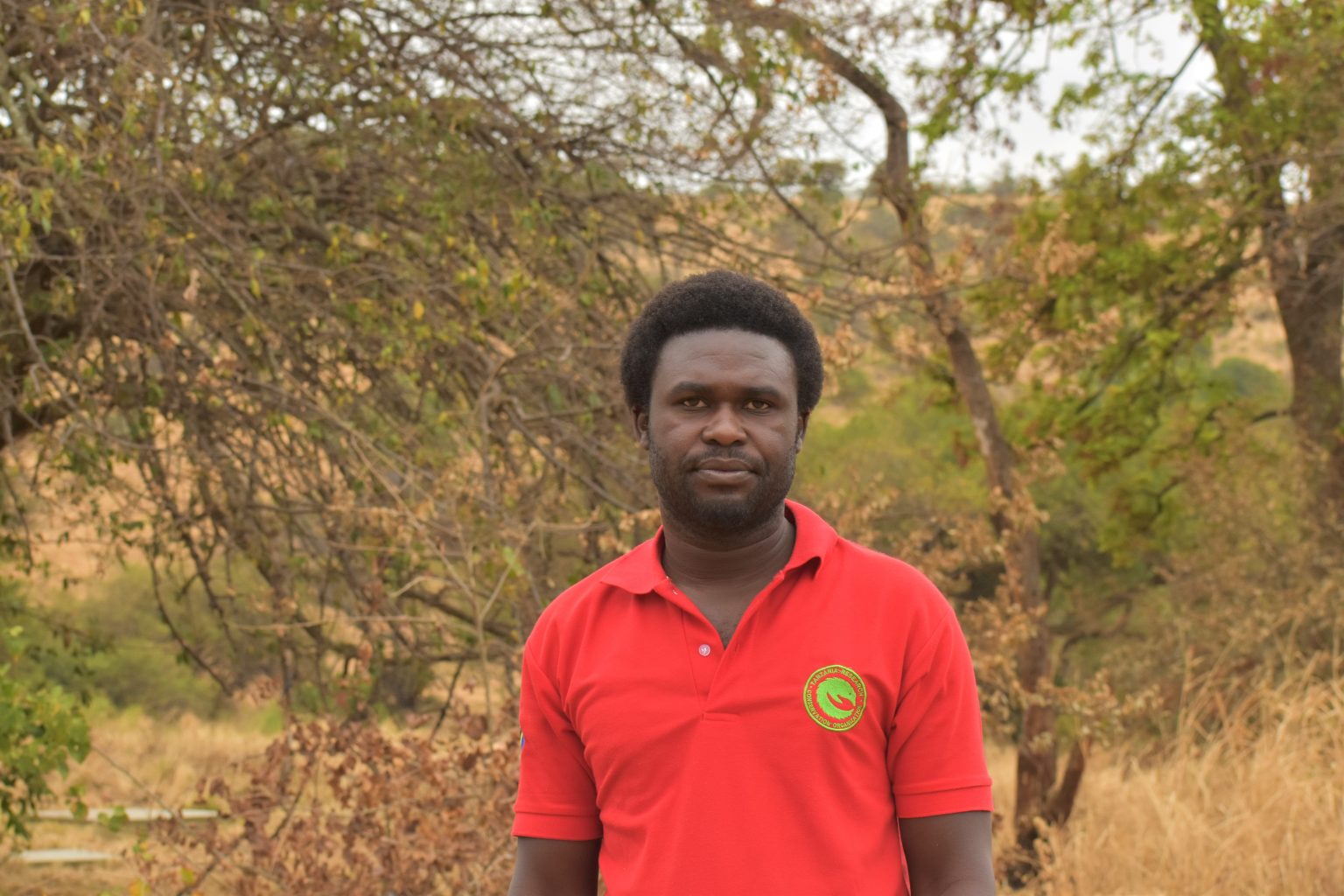
Michael Kimaro
Co-Founder & Managing Director
Michael is the Co-founder and the Managing Director of the Tanzania Research and Conservation Organization (TRCO). Also, Michael is a PhD candidate at the University of Groningen, Netherlands, and his study focuses on the “Management of human-wildlife conflict along hard boundaries of African protected areas through fencing”, and the case study is in the western Serengeti.
He completed MSc in Ecology and Evolution, with a specialization in Ecology and Conservation at the University of Groningen. While doing his master’s, he assessed the interaction of wildlife, vegetation, and livestock in the eastern Serengeti ecosystem. He also assessed the ecological impacts of electric fencing on wildlife habitat utilization in the western Serengeti in collaboration with the Grumeti Fund and Tanzania Wildlife Research Institute (TAWIRI). Before his MSc, he completed a Postgraduate Diploma in International Wildlife Conservation Practice at the University of Oxford, and a BSc in Wildlife Science and Conservation at the University of Dar es Salaam, Tanzania. Michael was involved in the assessment of large carnivores’ ecology and developing mitigation strategies for human-carnivore conflict, from 2013 up to 2018 in the Ruaha-Rungwa ecosystem through Ruaha Carnivore Project.
Michael assessed the impacts of pastoralist resettlement on lion conservation in Tanzania’s Ruaha landscape, in collaboration with Dr. Courtney Hughes. In addition, Michael has collaborated with Tanzanian park ecologists to determine the density of lions in the Ruaha and Katavi National Parks. Further, Michael collaborated with Tanzania National Parks on the assessment of wildlife distribution in the three established national parks in western Tanzania, the Burigi-Chato, Ibanda-Kyerwa, and Rumanyika-Karagwe. Michael plays an important role in facilitating the research and conservation of pangolins in Tanzania.
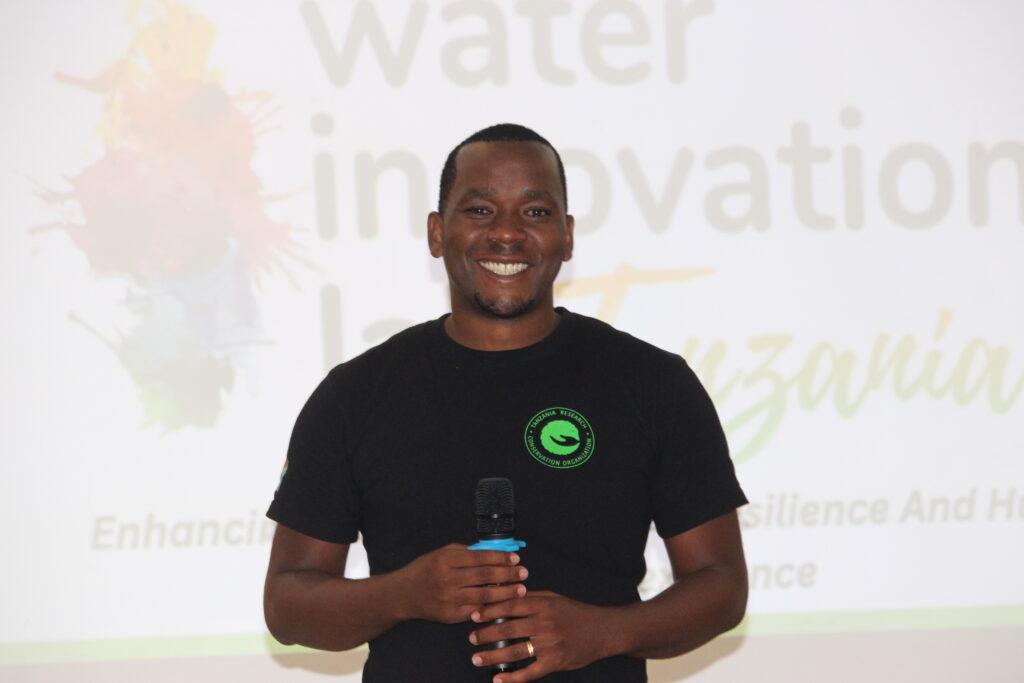
Nyemo Chilagane
Co-founder & General Secretary
Nyemo is a Founder and General Secretary of the Tanzania Research and Conservation Organization (TRCO). He holds an MSc in Management of Natural Resources for Sustainable Agriculture from Sokoine University of Agriculture (SUA), where his research focused on Assessing the effects of Land Use and Land Cover Changes on Ecosystem Services within the Little Ruaha river catchment. Prior to this, Nyemo completed his BSc in Eco-tourism and Nature Conservation at Sebastian Kolowa Memorial University (SEKOMU), with his undergraduate project centered on Assessing the Impacts of Agricultural Practices on wetland ecosystems within the Kilombero Valley Ramsar Site.
Nyemo has ample experience in Remote sensing and GIS, and has accumulated wealth of experience from working and being involved as a researcher and consultant in several research projects. Nyemo worked with Development Corridor Partnership delivering effective research and Capacity building to address impacts of development corridors on ecosystems and how can be designed to offer sustainable, resilient and inclusive economic growth. Furthermore, he contributed to projects such as TRADE, DEVELOPMENT AND THE ENVIRONMENT Hub, focusing on assessing wildlife trade, policies, and local hunting management in Tanzania, as well as the EFLOWS project, which involved water resource assessment and conservation practices in the Southern Highlands.
Additionally, Nyemo actively participates in initiatives such as the Water Innovation Lab, aiming to identify and implement innovative solutions for water resource conservation and Natural resource resilience in Tanzania. He has also been involved in numerous surveys and studies, including social-economic baseline surveys for Feasibility of Cost-Effective Carbon Sequestration in Southern Highland Tanzania, Ecological Baseline study of flora and fauna in Rufiji delta, Baseline survey for effective landscape-level planning for sustainable development in the SAGCOT Corridor, Characterization and Mapping of Resource Use Conflicts in Mvomero and Kilosa Districts, and Assessing the effects of forest plantations on Biological diversity, Water resource and Soil Health in Ukaguru Mountain forest, Tanzania. He has worked with the Participatory Plantation Forestry Programme (PFP 2) during the programme baseline data collection in the Southern Highlands responsible for Participatory Woodlots Mapping (PGIS).
Nyemo’s contributions extend to capacity building programs, where he facilitates training courses on applied Remote Sensing and GIS techniques, geospatial analysis, ecological and hydrological modeling, and social science research methodologies including FGD’s, PRA’s and Open Data Kit. Currently, he is deeply engaged in the implementation of the Tanzania Pangolin Conservation Project and has authored several peer-reviewed articles covering topics such as hydrology, land use, climate change, and wildlife conservation.

Fenrick Msigwa
Co-founder & General Treasurer
Fenrick is Co-founder of the Tanzania Research and Conservation Organization (TRCO). Fenrick is currently doing MSc in Environmental and Natural Resource Economics from the Sokoine University of Agriculture (SUA) of Tanzania. His MSc project focus on the local communities perspectives in wildlife utilization in the Tanzania’s Ruaha-Rungwa ecosystem. His expertise is generally based on the political ecology, hunting tourism, and natural resource governance.
Fenrick has completed a Bachelor of Tourism Management at SUA. After completion of his bachelor degree, he started as volunteer in 2015 for tourism and conservation related activities in the Serengeti National Park, and in 2016 he joined the Ruaha Carnivore Project as research assistant, and focused on the assessment of large carnivore ecology, evaluate and develop human-carnivore conflict mitigation strategies.
He has been involved in other research projects such as the assessment of the impacts of climate change to wildlife and tourism sector in the Ruaha-Rungwa ecosystem; assessment of the impacts of livestock incursions in the western Ruaha National Park; and exploration of ethnozoological knowledge and attitude towards pangolins in the Tanzania’s Ruaha landscape.
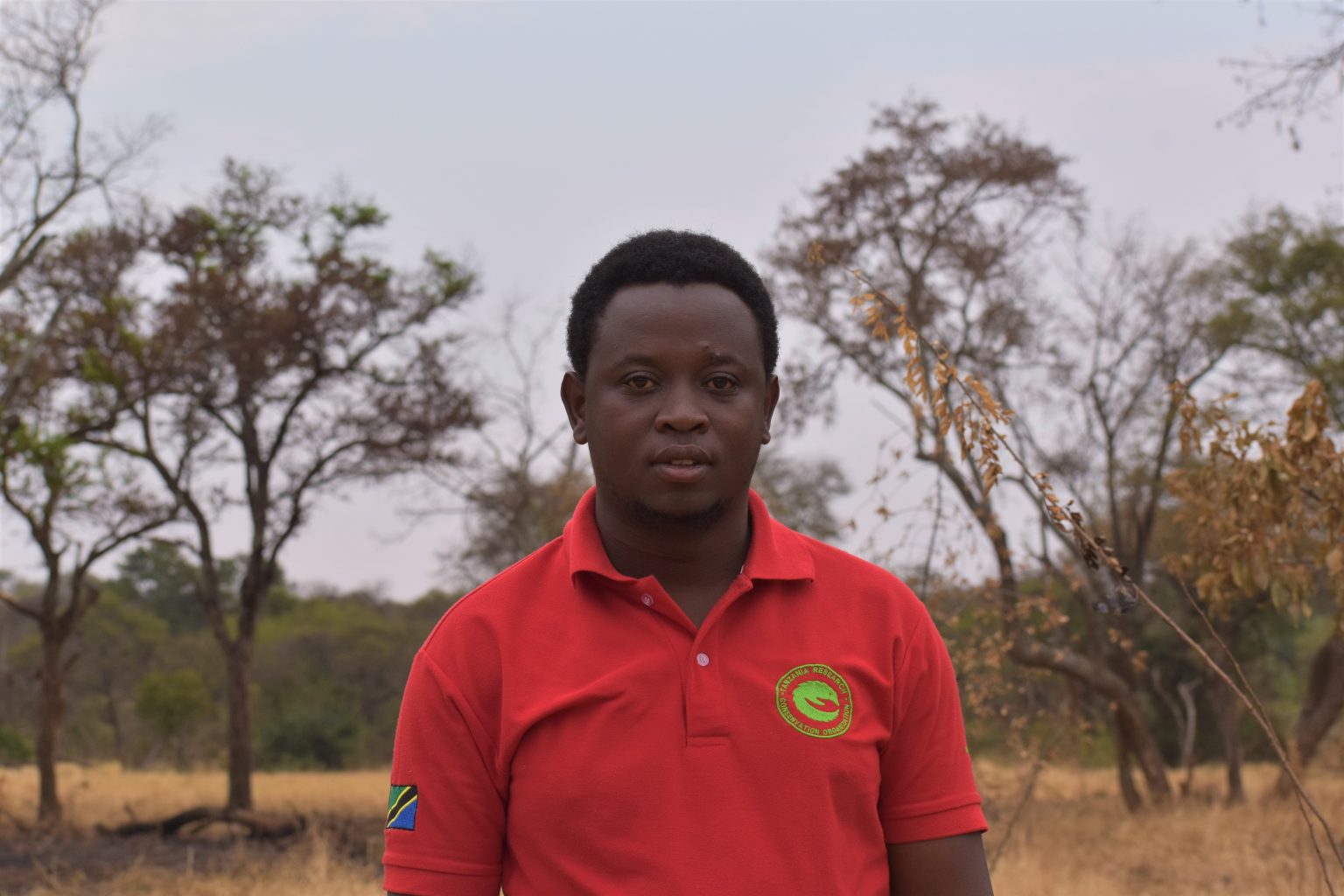
Elisante Kimambo
Co-founder
Elisante is a Co-founder of the Tanzania Research and Conservation Organization (TRCO) and a conservation scientist with strong experience in wildlife research and community-based conservation. He holds a Master of Science in Wildlife Management and Conservation from Sokoine University of Agriculture (SUA), Tanzania, and a Bachelor of Science in Wildlife Management from the same institution.
Following his undergraduate studies, Elisante joined the Ruaha Carnivore Project as a Research Assistant, where he contributed to research on large carnivore ecology and human–carnivore conflict mitigation in the Ruaha landscape. His research interests span ecosystem services, traditional conservation knowledge, and species conservation.
Currently, Elisante is involved in research assessing the ecosystem services of sacred forests and their contribution to the Sustainable Development Goals (SDGs) in the Eastern Arc Mountains. He has also participated in studies exploring ethnozoological knowledge and community attitudes toward pangolins in Tanzania’s Ruaha landscape, contributing valuable insights to culturally informed conservation approaches.
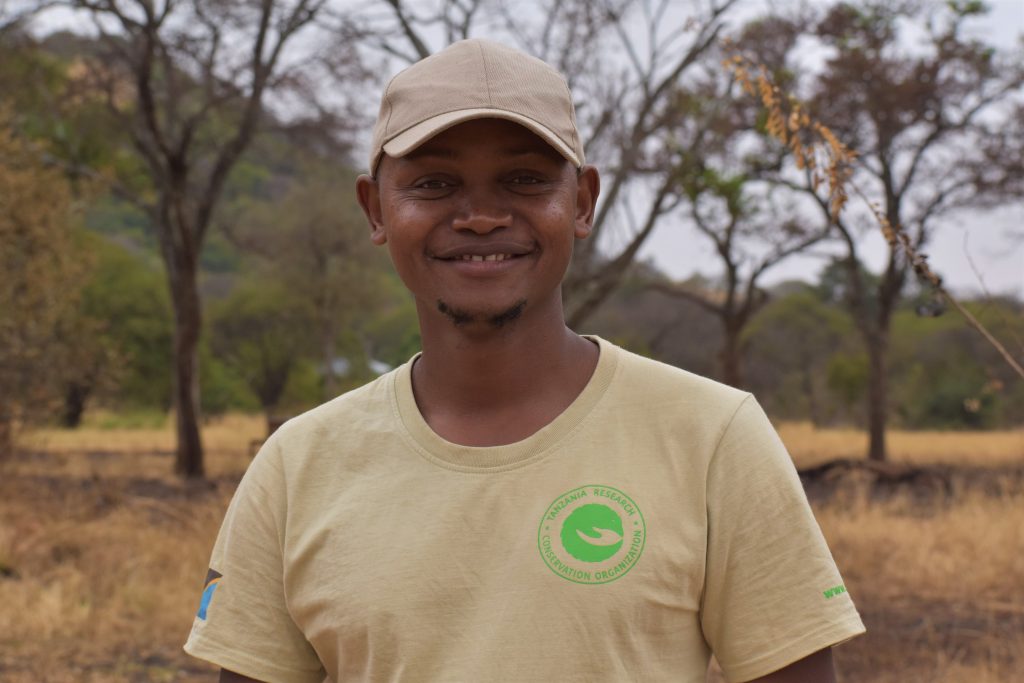
Hillary Mrosso
Co-founder & Communication Manager
Hillary Mrosso holds both a Bachelor’s and a Master’s degree in Wildlife Management and Conservation from Sokoine University of Agriculture (SUA). Hillary has research experience in carnivore ecology, illegal wildlife trade, poaching, and human-wildlife conflicts and managing outreach programs.
Currently, Hillary is actively engaged in a number of high-impact conservation projects with the Tanzania Research and Conservation Organization (TRCO), where he focuses on the conservation of pangolins and giraffes across Tanzania. His efforts span several key landscapes, including the Tanzania Pangolin Conservation Project in wildlife corridors such as Kwakuchinja, Nyerere-Selous-Udzungwa, Amani-Nilo, Ruaha-Rungwa-Katavi, Rungwa-Inyonga, and Muyowosi-Kigosi-Burigi-Chato. In addition, he plays a critical role in giraffe conservation initiatives in various protected areas throughout the country.
As the Head of Communications at TRCO, Hillary is responsible for writing, editing, and managing content across multiple platforms, including websites, blogs, newsletters, and social media. His duties include crafting compelling stories, developing press releases, and producing reports that engage the public and key stakeholders. Beyond his role at TRCO, Hillary also owns and manages the Wildlife Tanzania Blog, where he writes and edits articles in Swahili on topics such as wildlife, biodiversity, climate change, conservation, and tourism. His blog, wildlifetanzania.co.tz, serves as a valuable platform to educate and engage the public on the importance of preserving Tanzania’s natural resources.
In addition to his fieldwork and communication efforts, Hillary has made significant contributions to scientific literature, with several publications to his name. His research and scientific papers can be explored through the following link: https://orcid.org/0000-0002-5492-2604
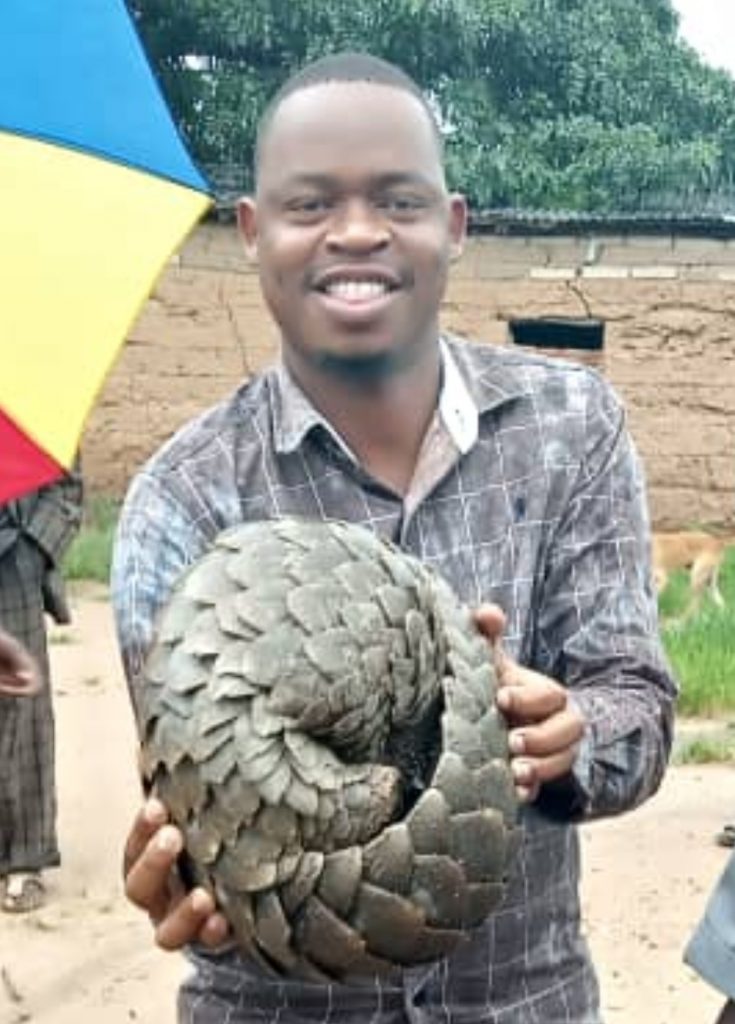
Simon Chidodo
Co-founder
Chidodo is a Co-founder of the Tanzania Research and Conservation Organization (TRCO). Simon completed his MSc in Ecosystem Science and Management at the Sokoine University of Agriculture (SUA) in 2019. His masters project focused on the assessment of rodents abundance in relations to habitat structure and type in the northern Uluguru Mountain, Tanzania. He completed his BSc in Eco-tourism and Nature Conservation at the Sebastian Kolowa Memorial University (SEKOMU), Tanzania. His BSc project assessed effects of land use and land cover on the macroclimate in Magamba village, Lushoto district, Tanzania. Simon has expertise on GIS and remote sensing, ecological surveys, ecohydrology, and socio-economic assessment surveys. As a research assistant, Simon worked with African Centre of Excellence for Innovative Rodent Pest Management and Biosensor Technology Development, Development Corridor Partnership. Simon participated in the assessment of local communities perceptions and attitudes towards pangolins in the Tanzania, Ruaha landscape. Simon is currently working with various researchers from the Tanzania National Parks, SUA, Finnish Embassy, the New Forest Company as expert or analyst in Remote sensing and GIS. Simon has multiple publications that focused on remote sensing, land use and land cover change, small mammals with particular focus on rodents, and climate change.
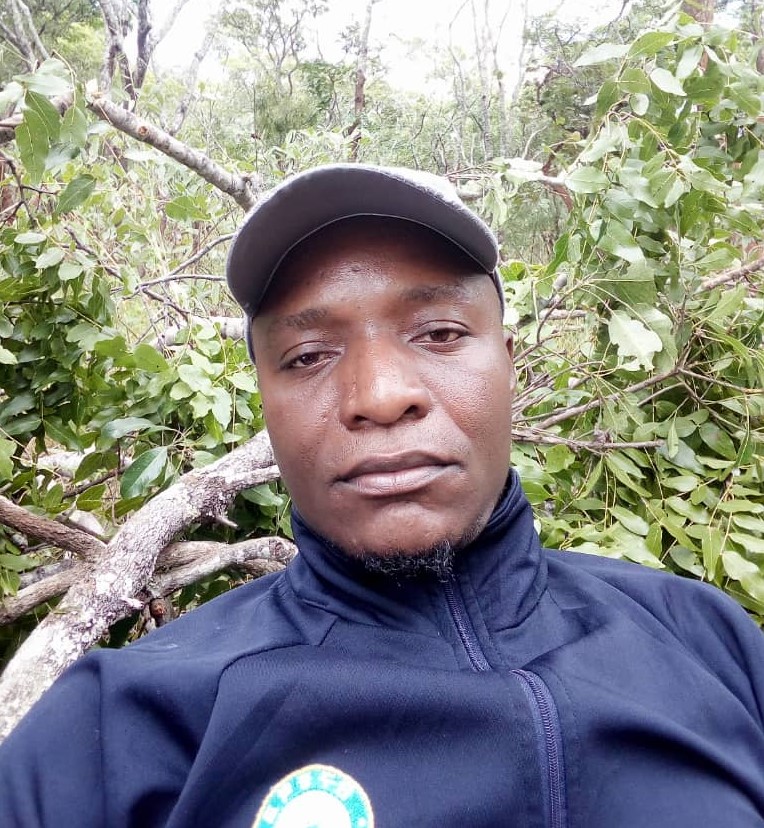
George Bulenga
Co-founder
Bulenga is a Co-founder of the Tanzania Research and Conservation Organization (TRCO). He graduated at the Sokoine University of Agriculture for both BSc and MSc degrees. He completed his MSc in Ecosystem Science and Management (Majoring in Forest Ecosystems), and his master project focused on the assessment of the relationships between vegetation diversity and edaphic factors in the Miombo woodland ecosystems in Tanzania. His BSc degree focused on Wildlife Management, and his project focused on the assessment of threats to biodiversity and their impacts to local communities’ livelihoods along the Mara River Basin. Bulenga has been involved in different projects that involve socio-economic surveys, ecological surveys, natural resources assessment including forestry inventories and management. He is an expert in ecological-related aspects including; Conservation of Biological diversity, Ecosystem Restoration, Landscape Ecology, and Climate Change. He has additional skills in Remote Sensing and GIS (QGIS & ArcView), SPSS, PCORD, and R. Currently, Bulenga work as a Wildlife Officer and Researcher in the Department of Natural Resources and Environment Conservation in Geita region, Tanzania. Bulenga has multiple published articles in local and international journals

Charles Peter Mgeni (PhD)
Co-founder
Charles is a Co-founder of the Tanzania Research and Conservation Organization (TRCO). He is a senior lecturer from the College of Economics and Business Studies at the Sokoine University of Agriculture (SUA), Tanzania. He acquired a postdoctoral position for the management of the Trade Development and Environment (TRADE Hub) Project in Tanzania, which focuses on the assessment of the trade flow of wildlife products and wildlife trade policies. Charles completed his PhD in agricultural economics at the Humboldt University of Berlin, Germany, and his main professional expertise in international trade policy analysis, program impact assessment, agricultural commodity value chain development, business plan development, and project management. He completed MSc and BSc in Agricultural economics (MSc) in 2009 and 2007 respectively at the Sokoine University of Agriculture, Tanzania. Charles has been involved in the assessment of ethnozoological knowledge and attitude towards pangolins, in the Ruaha landscape, and the Pangolin Product Trade flow in Tanzania. Charles performed several consultant projects since 2010 and published multiple scientific articles.

Rose Peter Kicheleri (PhD)
Co-founder
Rose is a researcher, an academician, a PhD holder, and a Lecturer at Sokoine University of Agriculture, Tanzania. She specializes in natural resources governance, climate change governance, and community-based wildlife management. She has more than 14 years of experience in policy analysis – stakeholders, powers, and institutional analysis, community-based natural resources management, conservation and development, and wildlife management. She has been engaging in both national and international conservation and development-related projects including advancing conservation in a social context working in a world of trade-offs (ACSC) [https://www.povertyandconservation.info]; the African Bio-service Project [https://africanbioservices.eu/]; the on-going projects on Livestock in the Forests (LIVEFOR) projects [https://www.cfwt.sua.ac.tz/index.php/research/projects/livefor-project]; SUARIS 1 project on community attitude and awareness on pangolins and trade flow; and now working as a Postdoc in climate governance for the ongoing the Role of Rural-Urban Linkages for Enhanced Climate Resilience in Tanzania (RUL4CLI) project[https://ign.ku.dk/english/rul4cli/] at the University of Dar es Salaam, Tanzania. Rose has published both locally and internationally in peer-reviewed journals.
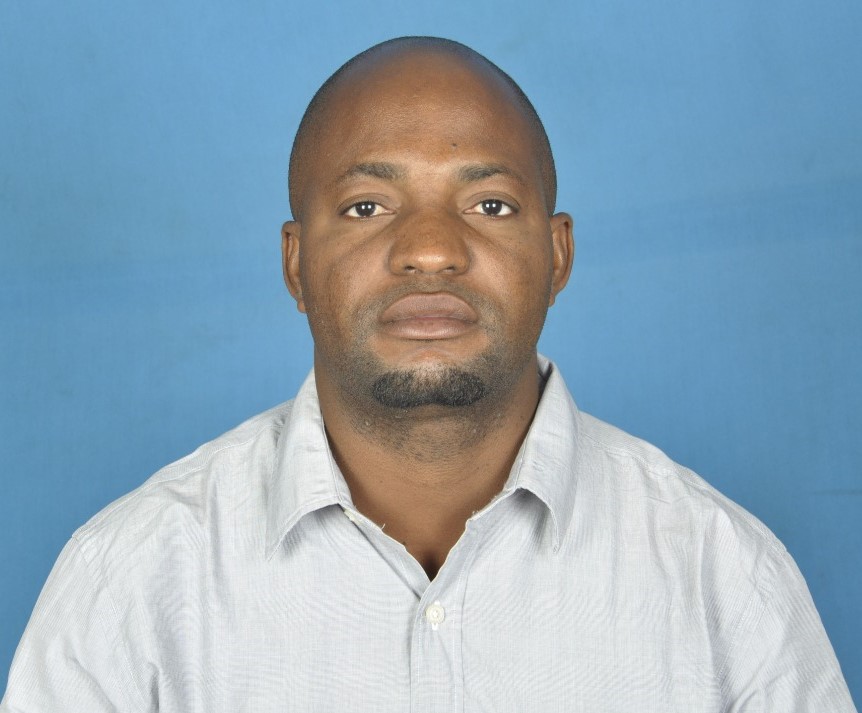
Joseph Rajabu Kangile (PhD)
Co-founder
Joseph Rajabu Kangile is a co-founder of the Tanzania Research and Conservation Organization (TRCO holds a Master’s degree and a PhD in agricultural economics. He has over 12 years of professional experience in research and development, including developing, managing, and coordinating research and development projects in the public and private sectors. He has worked as a researcher and coordinator of research projects in trade, water, sustainable management of natural resources, resilience and adaptation strategies, energy, and agri-food systems.
His research interests have grown in the economics of water, energy, and the environment, including understanding the challenges to nature, such as climate change. He also works in the wildlife sector, focusing on the economics of wildlife and conservation. He is currently exploring the knowledge and attitudes of local communities towards pangolins in Tanzania’s Ruaha landscape.
His prior formal employment includes working with Unilever, FINCA, and TARI in Dakawa as the head of socioeconomics and Marketing Research. He has consulted for various organisations, including the European Union, FAO, UN Women, and the World Food Programme (WFP).

Loveness Uroki
Finance Officer
Loveness Uroki has been employed as a Finance Officer at TRCO since September 2023. She holds a Bachelor of Science in Economics and Finance from the Institute of Accountancy in Arusha (IAA). Upon completing her studies at IAA, Loveness began her professional career at the Higher Education Student Loans Board, where she served as a contract Loan Officer. In this role, she played a key role in managing financial records, preparing detailed reports, and contributing to budget development and financial statements. Concurrently, she gained valuable experience in financial management and taxation while working with NTN Consultant Limited.
In 2025, Loveness started her Certified Public Accountant (CPA) professional qualification, which is fully sponsored by TRCO as part of the organization’s commitment to staff capacity development. At TRCO, she is responsible for managing financial reports, monthly budget reports, and other financial and administrative functions. She also conducts periodic assessments of procurement activities to ensure strict adherence to procurement plans, donor requirements, and TRCO’s internal policies and manuals, thereby strengthening the organization’s financial accountability, compliance, and sustainability.

Leon Hermenegild
Research Assistant
Leon Hermenegild is a dedicated and talented researcher currently employed as a Research Assistant at TRCO, a position he has held since September 2023. Prior to this role, he served as an Intern at TRCO, where he demonstrated strong research capacity and commitment to conservation work. Leon holds a Bachelor’s degree in Wildlife Management, which he earned with Distinction from the College of African Wildlife Management in 2022. He also possesses a Diploma in Animal Health and Production obtained from the Livestock Training Institute, Morogoro Campus, in 2018.
Leon conducted research on the use of trained detection dogs in combating wildlife crime, with case studies at Kilimanjaro International Airport, Manyara Wildlife Ranch, Mkomazi National Park, and Serengeti National Park. Recognized as a top-performing candidate, he further advanced his career by volunteering with the Honeyguide Foundation and the Tanzania Elephant Foundation, where he gained hands-on experience in applied conservation and field research. His strong technical skills and proven dedication led to him becoming the first Research Assistant recruited by TRCO.
In November 2025, Leon commenced a Master of Science in Conservation at the University of Dar es Salaam. His postgraduate studies are supported by the Giraffe Conservation Foundation (GCF) and TRCO, reflecting confidence in his potential to contribute meaningfully to wildlife conservation research and practice.
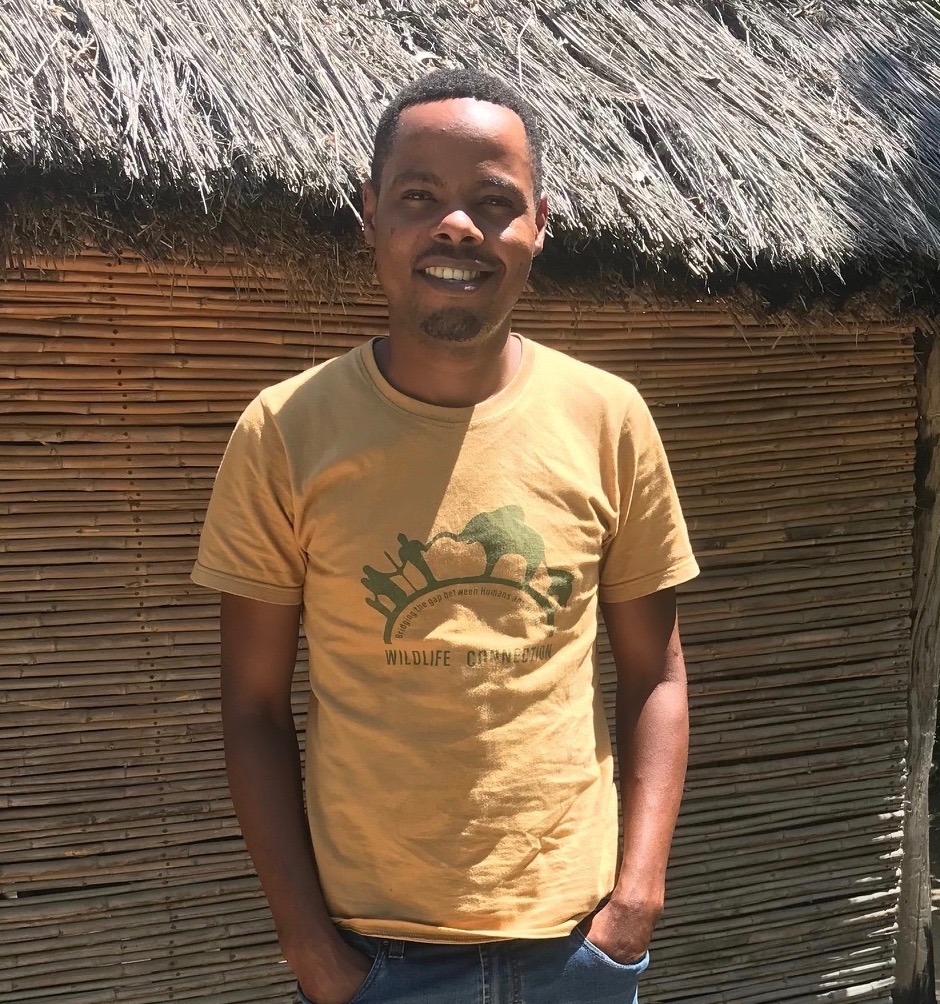
Zablon Fataely
INTERN (2024-2025)
Zablon Fataely, based in Moshi, Tanzania, is a conservationist with a solid background in project planning, management, and community engagement. As the Field Site Manager for Jamii na Uhifadhi Tanzania (Wildlife Connection) since 2019, Zablon has been instrumental in managing field operations, building staff capacity, and fostering strong relationships with local communities, village leaders, and park authorities. His expertise lies in coordinating program activities, maintaining high morale among teams, and overseeing the timely and accurate collection of conservation data, particularly regarding human-elephant conflict mitigation.
Zablon’s work has significantly expanded the organization’s impact, including introducing conservation initiatives to new districts in Tanzania and enhancing local staff skills in areas such as computer usage and driving. He played a key role in establishing a local library and stationery shop, fostering community development.
In addition to his fieldwork, Zablon led a high-impact conservation project addressing Traditional Elephant Hunting Among the Barabaig Pastoralist Community, supported by the Rufford Small Grants Foundation. Through this initiative, he contributed to reducing elephant killings, promoted community awareness, and strengthened collaborations with anti-poaching agencies.
Zablon’s commitment to conservation began with his volunteer roles at the Pangani Water Basin Office and the Tanzania Red Cross Society, where he honed his skills in environmental management and community education. He holds a Bachelor of Arts in Geography and Environmental Studies (Upper Second Class) from the University of Dar es Salaam.
Zablon is proud to be a beneficiary of the Wildlife Conservation Network (WCN), which generously sponsors his Master’s project. Additionally, through WCN’s support, Zablon secured funding for an internship program at the Tanzania Research and Conservation Organization (TRCO). During his internship at TRCO, Zablon has gained invaluable experience and developed a diverse range of skills, including:Designing social and ecological projects.
- Managing data, including database development and data cleaning.
- Acquiring remote sensing data using Earth Engine and QGIS.
- Processing camera trap data with TrapTagger Application.
- Conducting data analysis using R software, such as occupancy modeling, species distribution modeling, spatially explicit capture-recapture analysis, linear and generalized linear models, and multivariate analysis.
- Writing technical and financial reports.
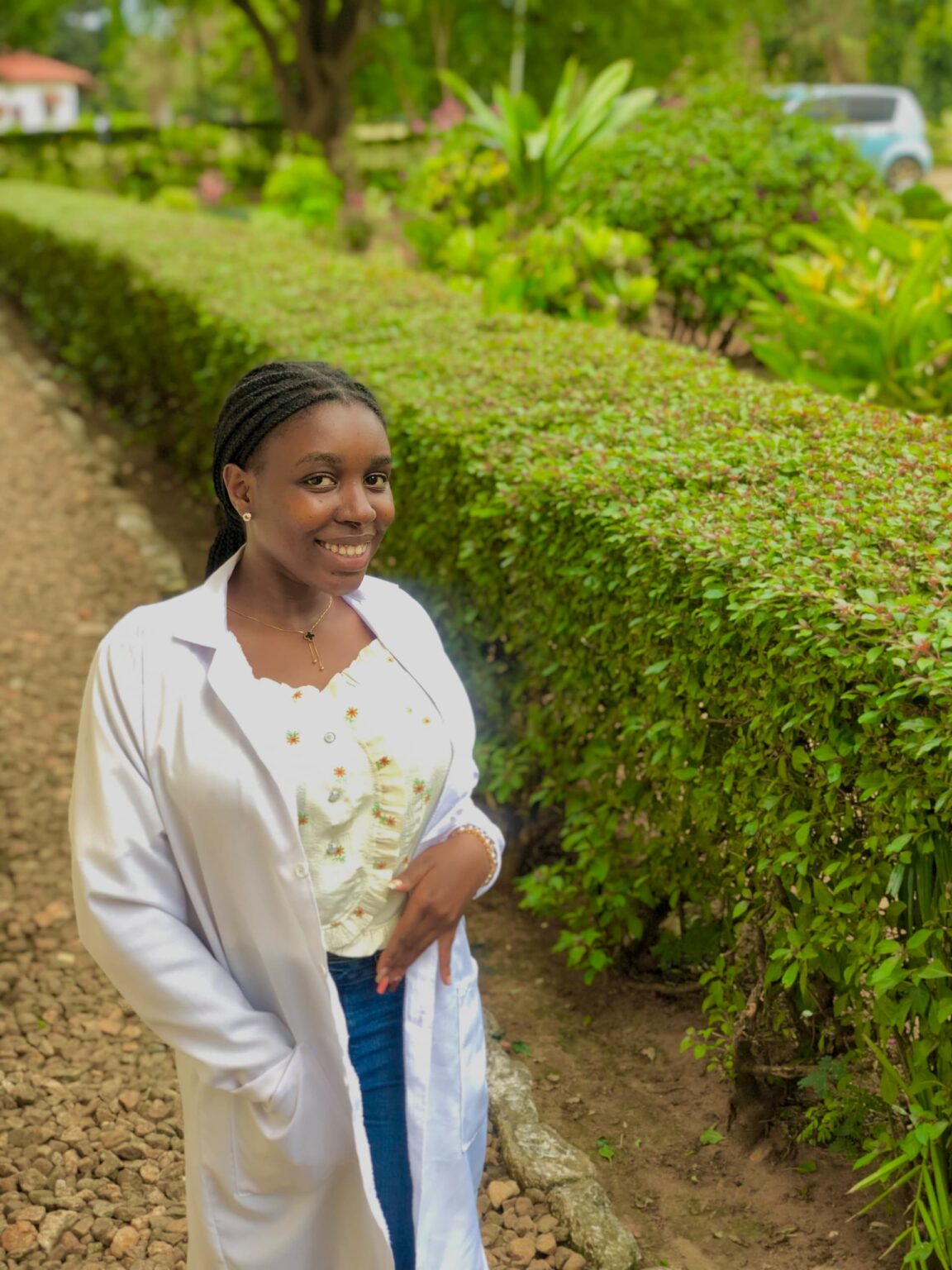
Juliana Benard Mugina
INTERN
Juliana is a third-year student pursuing a Bachelor’s degree in Environmental Sciences and Management at Sokoine University of Agriculture (SUA). She has gained valuable practical experience through fieldwork and internships with institutions such as Geospatial Technologies and Environment (GeoTE), where she was involved in mapping and spatial data collection, and the Dodoma Urban Water Supply and Sanitation Authority (DUWASA), where she contributed to water resource management initiatives.
Currently, Juliana volunteers at the Tanzania Research and Conservation Organization (TRCO) as a Social Media and Content Creator. In this role, she supports biodiversity research and conservation efforts by developing engaging content, managing digital platforms, and raising community awareness about the importance of environmental protection. Juliana is passionate about environmental sustainability, climate action, and the use of communication to inspire positive change in conservation.

